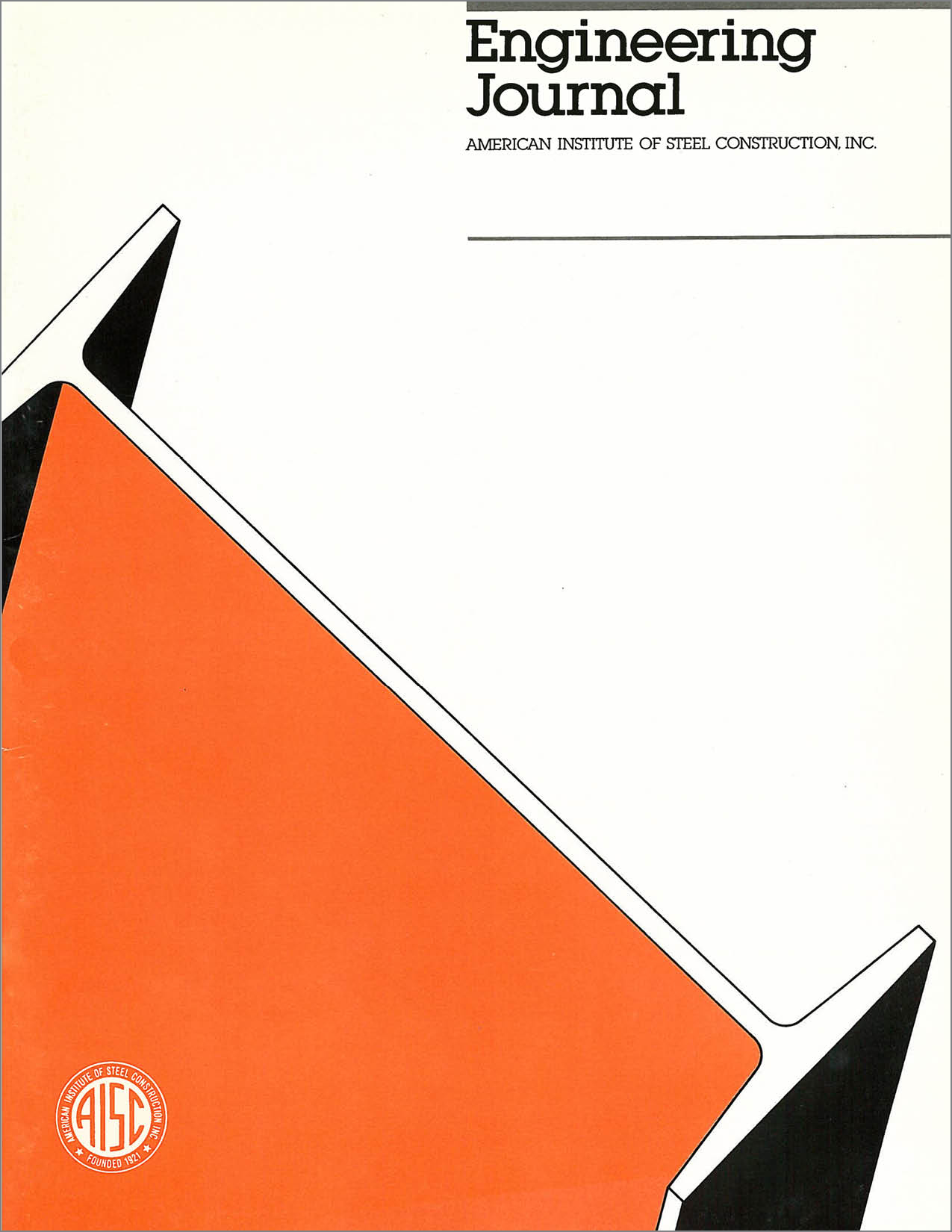Serviceability Limit States Under Wind Load
DOI:
https://doi.org/10.62913/engj.v30i1.606Abstract
The increasing use and reliance on probability based limit states design methods, such as the recently adopted AISC LRFD Specification, has focused new attention on the problems of serviceability in steel buildings. These methods, along with the development of higher-strength steels and concretes and the use of lighter and less rigid building materials, have led to more flexible and lightly damped structures than ever before, making serviceability problems more prevalent. The purpose of this paper is to focus attention on two important serviceability limit states under wind loads; namely, deformation (including deflection, curvature, and drift) and motion perception (acceleration). These issues are particularly important for tall and/or slender steel and composite structures. A brief review of available information on these subjects will be presented followed by a discussion of current standards of practice, particularly in the United States. Finally, proposed standards will be presented that, hopefully, will focus attention, debate, and perhaps new research efforts on these very important issues in design.

